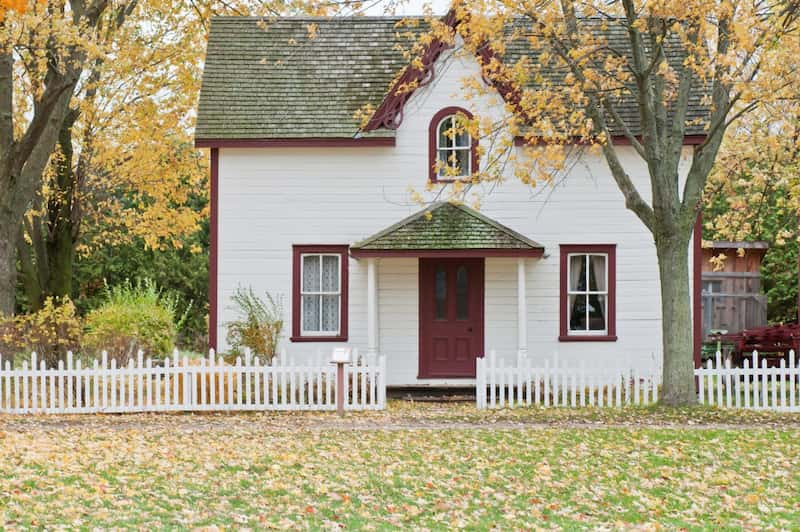Buying a home is a major financial undertaking, and it’s no surprise that it’s easy to become overwhelmed. That’s why knowing the type of financial options available to you is so important. Fortunately, there are now more funding options than ever to help make your home ownership goals a reality.
One of the most common questions is regarding the type of home financing. Should you get a traditional mortgage loan or opt for a personal loan? Are there times when one is better than the other? Although many people’s default response would be to go for a mortgage loan, there are some instances in which that isn’t always feasible or desirable.
In cases like these, a personal loan may be a more viable mortgage alternative.
Why consider a personal loan for your mortgage?
Personal loans can be used for almost anything, however the one thing to keep in mind is that they are viewed as unsecured loans. This means that you don’t need to put up any collateral (such as your home or car) against the loan in case you fail to pay it. In exchange for this relative leeway in getting financed, you’ll pay a higher interest rate.
Generally-speaking, personal loans have a shorter term than mortgages—usually around five years. And although they’re not usually used to buy a home, they can be, so long as the lender agrees to it.
Personal loan amounts depend on your eligibility and how much the lender is willing to let you borrow, but they can be for as much as $50,000, or more, provided you have excellent credit. Interest rates vary considerably and can be anywhere from 3.99%-36%—again depending on your creditworthiness and other factors. Personal loans usually have a fixed monthly repayment amount.
You may also want to consider a personal loan because of the tax implications. You won’t be charged income tax on the amount you borrow (unless the debt is forgiven by the lender). In addition, there’s no down payment required in order to qualify, and should you come into any financial hardships or have an emergency, you may be able to negotiate your repayment.
Why consider a mortgage?
Mortgages are loans specifically designed for real estate. Unlike personal loans, which are unsecured and thus have higher interest rates, mortgages are secured and tied to your property. This, in turn, means that you may get a lower interest rate. You can also pre-qualify for a mortgage to have a more solid understanding of what you’ll be paying every month.
Mortgages also have tax advantages. You can deduct interest, points, and real estate taxes from your yearly taxes. However, if you’re unable to make payments your home may go into foreclosure. Furthermore, if you have an ARM or Adjustable Rate Mortgage, the payments are tied to the stock market and may fluctuate with the volatility of the market.
Unlike personal loans, mortgage loans can be much larger. With this in mind, it’s possible that over time, you’ll be paying tens of thousands of dollars in interest alone. However, you also get more attractive interest rates, even if your credit isn’t flawless.
Which borrowing option is right for you?
The option you choose is entirely dependent upon your needs as a borrower. It’s also common to get a mortgage and then use a personal loan to buy other must-haves for your home, such as furniture. Personal loans are also often used to make improvements to the home, while some home buyers will opt into a larger mortgage to cover bigger expenses such as an addition or other significant renovation.
It’s worth noting that you generally can’t use a personal loan to make a down payment, since lenders want to see that you can actually afford the loan by fronting the down payment yourself. There are some exceptions to this rule, however, and if you’re debt free, it’s possible that a lender will allow you to fund your down payment with a personal loan as part of your debt-to-income ratio.
What is a “remortgage”?
A remortgage is another way of saying “refinancing”. With a “remortgage”, you refinance your mortgage and pay off your current one with a second one, generally at better or lower interest rates.
The option you choose will depend not only on your creditworthiness, but also on your goals for homeownership. If you’re looking to buy a home, a mortgage is the optimal path. If you have a home but need to make significant repairs or other purchases, a personal loan or home equity loan may be your best short-term option, especially if it means you can avoid any fees associated with breaking your mortgage. While a remortgage is an option worth considering if you can get better rates or more favourable mortgage terms than your current mortgage, a flexible short term loan can be the best gap to refinancing in order to avoid penalties and set yourself up for the best long-term rate.
Having trouble deciding? Don’t hesitate to speak with an advisor.
There’s a lot to consider when you’re thinking of applying for a loan—whether it’s a mortgage loan, home equity loan, refinancing, or a personal loan. Since there’s no one-size-fits-all option for everyone, it may be best to consult with a financial advisor to better understand what your options are.
The right lender can not only help you make sense of what’s available to you, but also set you on a path to a healthier financial future.
We’re here to help you reach your home financing goals.
